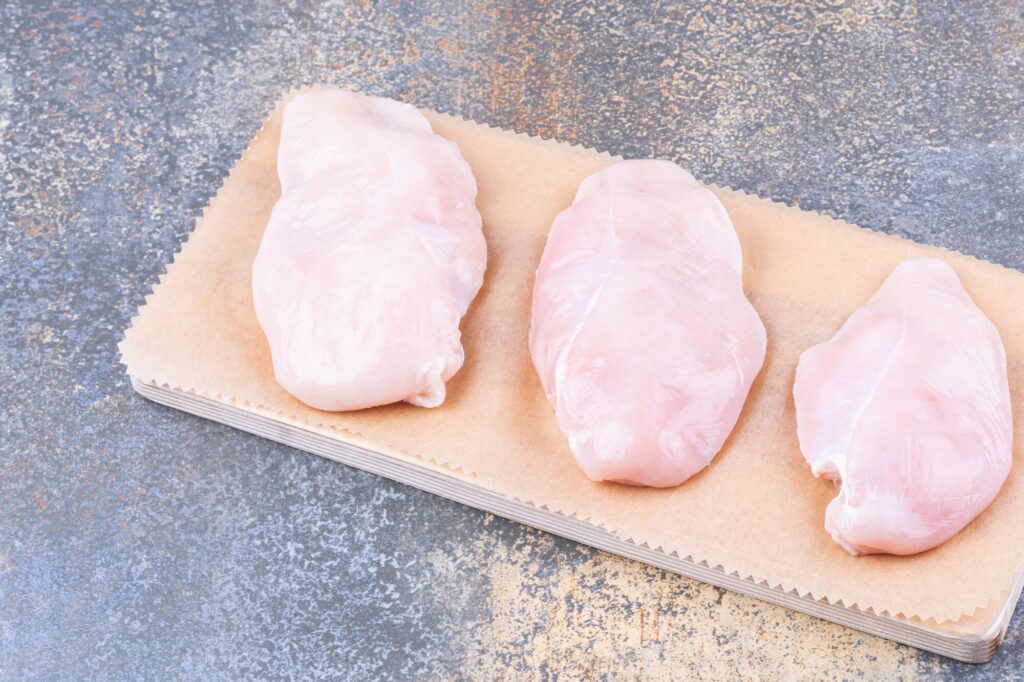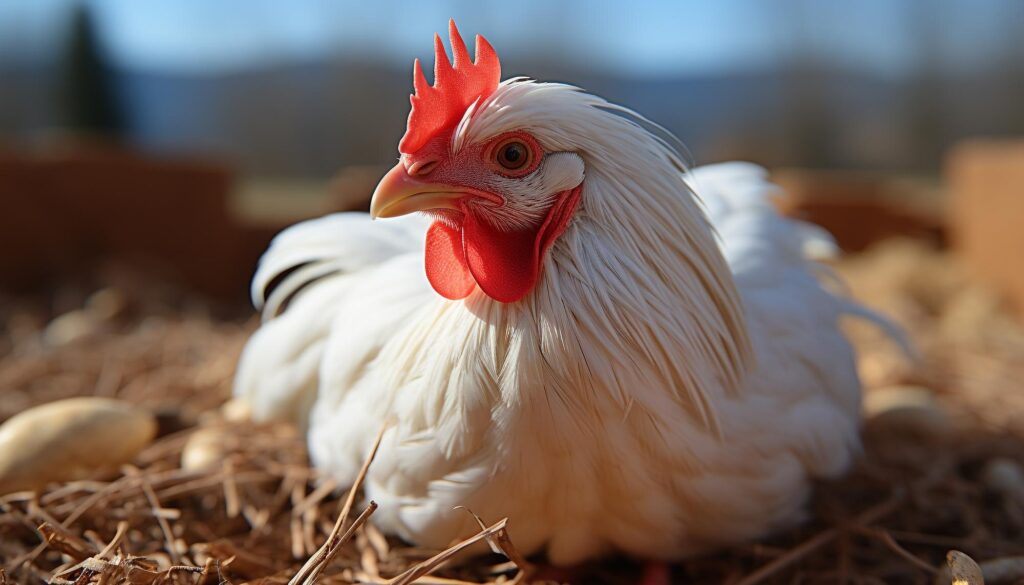When the chicken she was cooking for supper disintegrated into stringy spaghetti bits, a Texas woman was taken aback.
The mother posted a picture of the raw chicken she was washing on social media, explaining that pasta was not an option that evening. The chicken was falling apart in her hands.
In her now-viral Facebook post, she says, “I think it’s that fake meat,” which is encouraging people to adopt a vegan diet. To find out more about the stringy chicken, keep reading!
Alesia Cooper, an Irving, Texas resident, posted a troubling image of a chicken breast objecting to its prospective placement on a dinner plate on March 21.

The mother of two writes: “I been debating on posting this but since I had to see it so do yall.” The post, which also shows an image of chicken shredding into spaghetti-like strands, continues: “I was cooking my kids dinner a couple of weeks ago and was cleaning my meat like I normally do and when I went back to start cooking it turned into this (SIC).”
Cooper, who shares she purchased the chicken breast from the budget supermarket Aldi, adds: “lol I think it’s that fake meat but I’m not sure anyways…I ain’t made chicken off the bone since.”
Online users immediately went into the comments area with their thoughts on the subject; some suggested that the chicken was developed in a petri dish or 3D printed.
“That’s lab grown chicken, it’s a new way they make chicken because, of the last few years, with the bird flu and resource shortages, they didn’t have produce so last year they announced that they found a way to make chicken in a lab and that’s what’s in stores now.” one person counters.
https://www.facebook.com/plugins/post.php?href=https%3A%2F%2Fwww.facebook.com%2FSharingIsCaringNewsner%2Fposts%2Fpfbid0oy46ykBMWtQ7xjXcKuJ3HAXeJRptnQ3QdQ6mSkMEMbX1zhT9LBCjMrYr1vYDJkM1l&show_text=false&width=500
Someone else writes, “GMO lab meat.”
A third decides it’s “fake i don’t buy it anymore.”
Another user offers a more logical explanation to the shredded chicken breast: “It’s not lab-grown meat or 3D printed meat. It comes from real chickens. The problem is when greedy chicken producers force-feed their chickens growth hormones so they grow way too fast.”
Bigger breasts
According to the Wall Street Journal, raising big-breasted chickens to grow faster is said to have produced “spaghetti meat” in addition to the hard, chewy meat known as “woody breast.”
Therefore, more meat may be produced per bird, increasing profit.
Professor of agriculture and food science at the University of Bologna in Italy, Dr. Massimiliano Petracci, tells the WSJ that “there is proof that these abnormalities are associated with fast-growing birds.”
Industry experts say eating “spaghetti meat” and “wooly breast” won’t harm you, despite their disturbing names.

However, it will damage the chickens since their enormous bodies are too heavy for their little legs to support.
Chubby chickens
According to data made public by the National Chicken Council, broiler chickens—chickens raised for meat—grow considerably more quickly than they did in the past. The typical chicken in 2000 weighed 5.03 pounds when it went to market at 47 days old. In 2023, the average chicken still goes to market at 47 days old, but the plump birds now weigh 6.54 pounds.
When comparing these figures to those from nearly a century before, it took broilers 112 days to reach a market weight of 2.5 pounds in 1925.
The previous century’s rising demand for white meat prompted the industry to make changes in order to give chickens “proportionally larger breasts.”
Dr. Michael Lilburn, a professor at Ohio State University’s Poultry Research Center, tells the Washington Post: “If people keep eating more and more chicken, chickens will probably have to get even bigger… We’ll have to increase the proportion of breast meat in each bird, too.”
“What people don’t realize is that it’s consumer demand that’s forcing the industry to adjust,” Lilburn said of the population’s penchant for chicken nuggets, wings, sandwiches and other cheap chicken products. “It’s a deceivingly small but vocal minority that are raising a lot of legitimate questions. The bulk of the U.S. population still doesn’t care where their food comes from, as long as its cheap.”
While fast food chains and some grocery stores have, in part, supported the demand for larger breast meat, The New York Times reports that some companies are demanding meat from slow-growth chickens, “contending that giving birds more time to grow before slaughter will give them a healthier, happier life and produce better-tasting meat.”
“I’m going vegan.”
Online users, however, are criticizing the noodled chicken and voicing their displeasure.
A cyberfan inquires: “It looks like worms ! What are they feeding us?”
“I got some like that a while ago. It looked like that on the bottom. Things haven’t looked right since we were young. A lot fresher,” shares a second.
Other netizens suggested shopping elsewhere: “You’ll get humanely raised and better quality chicken from a local butcher or co-op. I recommend going there instead for your meat.”
And a few were motivated to switch to vegetarianism.
“I’ll go vegan!! Too much lab food around,” writes one while another adds: “This is why we are thinking about going pescatarian.”
It is truly regrettable that these poor animals are going through so much suffering in their brief lives as a result of factory farming.